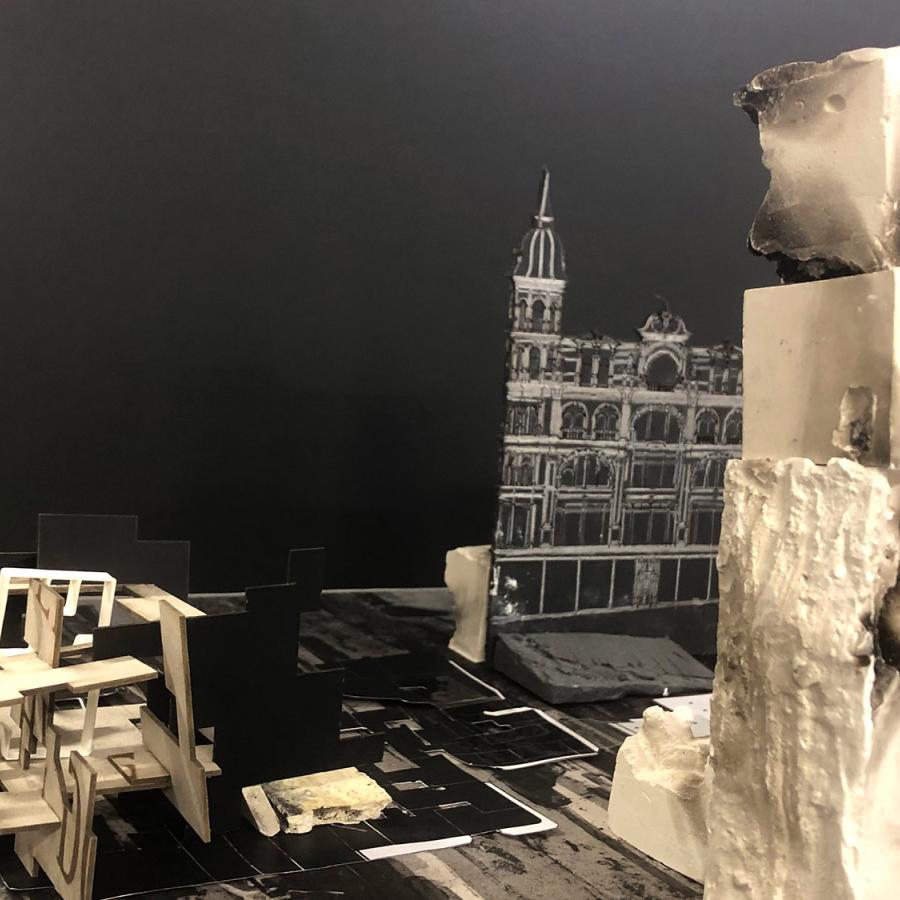Dr Killian O’ Dochartaigh

Job title:
Senior lecturer in Architecture and Urbanism
Office:
Minto House, Room 3.56
Research Output:
Edinburgh Research Explorer linkBiography
Killian O’Dochartaigh is an architect whose work examines post-conflict and post-disaster built environments. Through practice and research, he explores how ‘development’—as regeneration—(re)produces unevenness across cities in both the Global North and South. With early experience in social and affordable housing practice in Ireland, Killian also worked with former Black Panther Malik Rahim in New Orleans’ Lower Ninth Ward following Hurricane Katrina in 2007 on housing, social, and environmental restoration projects. Since then, his work has been situated in the post-war reconstruction contexts of Rwanda, Sierra Leone, and Liberia.
He was awarded the Frederick Bonnart Scholarship in 2014 to undertake a PhD by Design at The Bartlett, UCL, a programme supporting research into racial, religious, and cultural intolerance and ways to counter it. His academic and professional training includes an M.Arch (KTH Stockholm, 2007), RIAI professional license (University College Dublin, 2004), DipArch (University of Strathclyde, 2000), and BSc Hons in Architecture (Queen’s University Belfast, 1997).
Killian’s architectural work, teaching, and research have been exhibited at the ICA, the Venice Architecture Biennale, and published in Japan Architecture + Urbanism (JA+U), Architectural Review, MAS Context, Footprint: Delft Architecture Theory Journal, VOLUME, and Afritecture: Building Social Change.
He was the recipient of the SAH Film and Video Award (2021) for Uppland, and his recent publication, “Frame, Fortress, Fenestration: The Architectural ‘Enframings’ of Rwanda’s Forests, 1904–2022,” appears in Architectural Theory Review (2025). His latest installation, Hill Station: Architecture and the Altitudes of Empire, was exhibited at RIBA North & Tate Liverpool.
Killian has been visiting lecturer, tutor and critic at the University of Johannesburg, Chalmers University of Technology Gothenberg, the Bartlett and has taught urban-ecology design studios, and history and theory, at the Kigali Institute of Technology in Rwanda (2010-2013. Killian has also worked professionally as an architect in Ireland, UK, Sweden, Rwanda, Sierra Leone, Liberia and Uganda. He is a member of of the Royal Institute of Architects Ireland, Transnational Architecture Group (TAG) based at the Liverpool School of Architecture, a UCL Member of the Centre for the Anthropology of Sustainability (CAOS) a member of International Committee for Documentation and Conservation of Buildings, Sites and Neighbourhoods of the Modern Movement (Docomomo-UK) and a scholar/member of the Frederick Bonnart Trust.
Research
Research
Killian Doherty locates architectural knowledge and design practices within wider histories of and theories of knowledge, drawing from post-colonial, political history, ecology, anthropology, sociology, geography and critical theory readings, of the Global South. He has designed and realized community, social-housing, educational and landscape projects, with a focus on design as form of political ecological practice. These have been primarily for vulnerable and under-represented groups across East and West Africa.
His current PhD by Design research focuses on the dissonance between ‘Development’ re-settlement practices that negatively affect indigenous rights of access to livelihoods and ‘nature’ in post-genocide Rwanda. Through historical readings and extensive ‘anthropological’ field work his research reveals how discriminatory forms of colonial power-knowledge are transferred to and reproduced by Rwanda’s re-emerging built environment. Field-work as collaborative research method expands the architectural conventions of drawing, walking and propositional work, as conscious of non-western perspectives and concerns.
The role of environmental technologies intersect within his research, operating across a number of scales and practices that can be summarized as: a means towards energy and resource efficient construction technologies; a tool for the representation and visualization of environments as complex socio-ecological ‘systems’; and a tool that informs collaborative engagement with different actors situated within transforming urban and/or rural environments.
Non-western perspectives of environmental change also provide clues to new modes of ‘social’ practices, beyond the paradigm of the building. Killian has recently completed a 30-minute essay film, with Scottish film-maker Edward Lawrenson, documenting the spiritual and environmental costs of iron-ore mining in Northern Liberia, as examined through the lens of a new-town. This film operates as a social text to makes legible the violent logic of modernity, widening to the consumptive footprint of extractive economies and contemporary urbanization to clarify anthropogenic concerns. This film premiered at the Cinema Du Reel international film festival in Paris and was screened the Lithuania Pavilion as part of the Venice Architectural Biennale 2018.
Current PhD students
PhD Supervision Topics
- Post-conflict and post-disaster reconstruction
- Decolonising Development
- Epistemologies of the Global Urban South
- Design Ethnographies and Anthropology
- Critical Cartographic practices
- Ecology, politics and design practices
- Colonial histories of urbanisation and extraction




